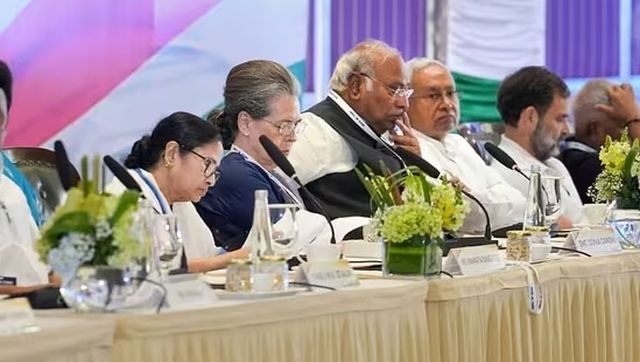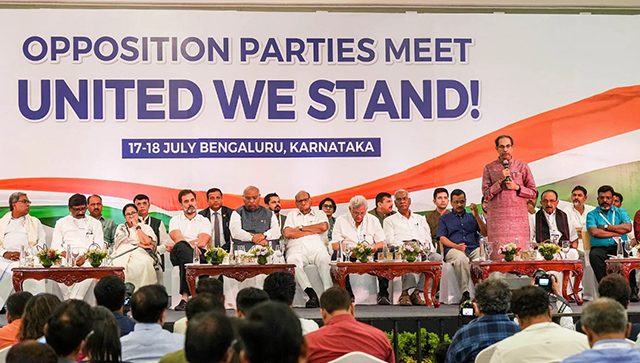Lucknow: If it is going to be a bitter year for sugar as all private mills in Uttar Pradesh have decided to not start crushing in this season, this will not be a sweet year for the Samajwadi Party (SP) run government as well.
Despite a strict government order to start crushing first from 15 November and then from 19 November, the millers are sitting and waiting for the government to announce the State Advisory Price (SAP), which should be not more than Rs 225.
“UP government needs to resolve the problem as quickly as possible. It should also rationalise the cane pricing policy by applying the recommendations of the Rangrajan committee,” says Abinash Verma of Indian Sugar Millers association (ISMA).
Rangrajan Committe had recommended that the cane pricing should be linked to sugar content and not related to weight of the cane. At present cane pricing is linked to its weight.
On Tuesday, about 65 private mills, including Bajaj Hindustan, Daurala, Simbhawali, Dhampur and other sent a notice to the government expressing their inability to run the mills.
The Akhilesh Yadav government cannot annoy the farmers and at the same time it would not like to face the ire of the farmers as well. Therefore the government reacted in less than 24 hours and came up with a solution which it feels will keep both the parties happy.
“Working on the demand of the millers we have decided the cane price of Rs 270/280 and Rs 290 for different varieties. We are also going to give a rebate to the millers on transport and the government has decided to waive off the purchase tax of Rs 2 per quintal which the millers had to pay”, the Principal Secretary Cane Rahul Bhatnagar told the Firstpost.
However, the offer does not seem to attract the millers as they have demanded the cane price of Rs 225. “Most probably we will reject this offer”, a miller expressed his apprehension. Noticeably, this year the millers did not even participate in the cane reservation meetings, in which, areas are allotted to cane growers to supply to mills in their vicinity.
“The mills are facing huge loses as the sugar prices are low due to last two years of bumper sugar production. While sugar prices are down, the rate of cane is increasing constantly. Making the scenario worse, the government of India also imported sugar from Pakistan in order to help the neighbouring country. The mills are not in a position to run if the cane price is anything more than Rs 225,” said an industry source.
UP is the biggest cane producing state and second highest sugar producing state. Every year the government of India declares the Fair and Remunerative Price (RFP) for cane before the crushing season. On top of it, Uttar Pradesh is the only state where the government declares its own State Advisory Price (SAP), which is much higher than the RFP.
The tussle is that while farmers demand a high price to cane, the industry demands a low price to make the mills viable to run.
“The idea behind this SAP is to appease the 40 lakh cane farmers who form a big vote bank in the state, especially in the West”, said Surendra Rajput, a political analyst.
Politicians like Ajit Singh of RLD and Hukum Singh of BJP, are surviving on this cane politics.
RLD has planned to hold a demonstration in the state capital on Thursday demanding the long time solution to the problems of sugar industry as well as cane farmers. Even Congress is contemplating a tie up with Ajit Singh, who has a hold in western UP.
Ramesh Dixit, professor of Political Science, Lucknow University explains the situation - “The sugar industry affects each and every government, especially during the election year. The fact is that the sugarcane growers are spread everywhere - west, east and central UP - no government can overlook them. Besides, farmers and millers both have their strong lobbies and the government has to keep both of them happy - one for money the other for votes.”
Professor Dixit further says that there are always cane arrears on millers’. The government takes the money from the industry and use that money to pay off the arrears. This way the government takes the credit and industry feels relieved. This practice is going on with all the government, irrespective of their political alliances."
Sugarcane is an issue, which gives mileage to both the ruling party as well as the opposition. This year because of the tussle between the farmers and the millers, it is the opposition which is gaining weight.
“The SAP announced by the government is not sufficient. States like Haryana are paying Rs 300-305 per quintal”, says BJP state spokesperson Vijay Bahadur Pathak. He points out that SP in its election manifesto had mentioned that it would constitute a commission to decide the minimum support price for the cane farmers’ produce, but now it is making decisions under the pressure from the millers.
BJP is already seeing its victory on 8-9 seats out of about a dozen seats in the cane belt. This face off between cane farmers and sugar mills will only add fuel to the fire for SP.
The fact is that the price announced by the government has neither made the millers happy nor charmed the cane farmers.
As it is, this year has become more crucial for the ruling party in the state. The party has lost its goodwill in western UP because of so many riots, especially the Muzaffarnagar one. And now the tussle of sugar industry!
Most of the farmers in this area (western UP) are Jaats, who are already angry with SP because of the way their government handled the riots. These Jaats are showing their inclination towards BJP.
The SP government wants to win back these Jaats cane farmers through this cane pricing but has failed to do so due to pressure of the millers, who this year are hell bent to get their way.
)
)
)
)
)